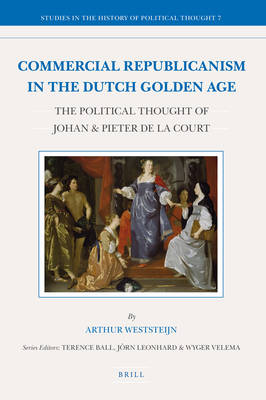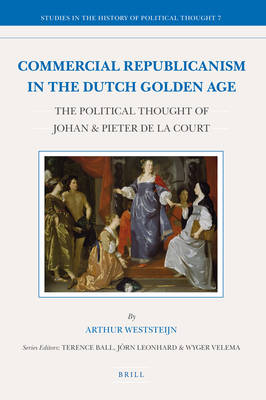
Door een staking bij bpost kan je online bestelling op dit moment iets langer onderweg zijn dan voorzien. Dringend iets nodig? Onze winkels ontvangen jou met open armen!
- Afhalen na 1 uur in een winkel met voorraad
- Gratis thuislevering in België vanaf € 30
- Ruim aanbod met 7 miljoen producten
Door een staking bij bpost kan je online bestelling op dit moment iets langer onderweg zijn dan voorzien. Dringend iets nodig? Onze winkels ontvangen jou met open armen!
- Afhalen na 1 uur in een winkel met voorraad
- Gratis thuislevering in België vanaf € 30
- Ruim aanbod met 7 miljoen producten
Zoeken
Commercial Republicanism in the Dutch Golden Age
The Political Thought of Johan & Pieter de la Court
Arthur Weststeijn
€ 157,45
+ 314 punten
Omschrijving
The Dutch seventeenth century, a 'Golden Age' ridden by intense ideological conflict, pioneered global trade, participatory politics and religious toleration. Its history is epitomized by the life and works of the brothers Johan (1622-1660) and Pieter de la Court (1618-1685), two successful textile entrepreneurs and radical republican theorists during the apex of Dutch primacy in world trade. This book explores the many facets of the brothers' political thought, focusing on their ground-breaking argument that commerce forms the mainstay of republican politics. With a contextual analysis that highlights the interaction between thinking and acting, between intellectual and cultural history, the book reveals the international significance of this commercial republicanism and it proposes a novel, rhetorical approach to seventeenth-century Dutch political culture.
Specificaties
Betrokkenen
- Auteur(s):
- Uitgeverij:
Inhoud
- Aantal bladzijden:
- 414
- Taal:
- Engels
- Reeks:
- Reeksnummer:
- nr. 7
Eigenschappen
- Productcode (EAN):
- 9789004221390
- Verschijningsdatum:
- 23/12/2011
- Uitvoering:
- Hardcover
- Formaat:
- Genaaid
- Afmetingen:
- 165 mm x 246 mm
- Gewicht:
- 816 g

Alleen bij Standaard Boekhandel
+ 314 punten op je klantenkaart van Standaard Boekhandel
Beoordelingen
We publiceren alleen reviews die voldoen aan de voorwaarden voor reviews. Bekijk onze voorwaarden voor reviews.











